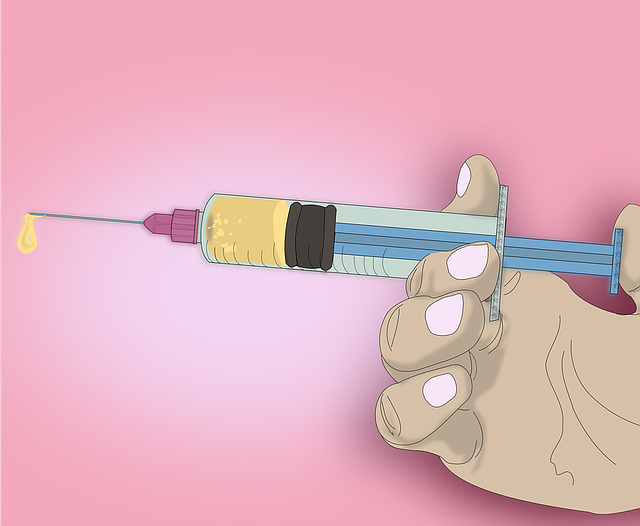Weight bias and stigma are pervasive issues that affect individuals across various aspects of life, including healthcare, workplaces, education, media representation, and social interactions. These biases—negative attitudes or stereotypes based on a person’s weight—can lead to discrimination, emotional distress, and even physical health consequences. Despite growing awareness of the harms caused by weight stigma, it remains deeply ingrained in societal norms and systems. Addressing this problem requires collective effort at individual, community, and systemic levels. In this article, we’ll explore what weight bias and stigma are, their impacts, and actionable steps to combat them.
What Is Weight Bias and Stigma?
- Weight Bias : This refers to negative attitudes, beliefs, or assumptions about people based on their weight. For example, assuming someone is lazy, undisciplined, or unhealthy because they are overweight.
- Weight Stigma : This occurs when these biases manifest as discriminatory behaviors, actions, or policies. Examples include derogatory comments, exclusion from opportunities, or unfair treatment in healthcare settings.
Both weight bias and stigma disproportionately affect individuals with higher body weights but can also impact those who are underweight. The root causes often stem from societal ideals around thinness, misinformation about health, and cultural narratives that equate weight with moral value.
The Impacts of Weight Bias and Stigma
Weight bias and stigma have far-reaching consequences that extend beyond hurt feelings. They contribute to:
- Mental Health Challenges :
- Increased risk of anxiety, depression, low self-esteem, and eating disorders.
- Feelings of shame, isolation, and internalized stigma.
- Physical Health Consequences :
- Avoidance of healthcare due to fear of judgment, leading to delayed diagnoses and untreated conditions.
- Chronic stress caused by stigma can increase inflammation, blood pressure, and other physiological markers linked to poor health outcomes.
- Social and Economic Disadvantages :
- Discrimination in hiring, promotions, and workplace environments.
- Bullying and harassment in schools or public spaces.
- Reinforcement of Harmful Stereotypes :
- Perpetuating myths that weight is solely within an individual’s control ignores the complex interplay of genetics, environment, socioeconomic factors, and mental health.
How to Address Weight Bias and Stigma
Combatting weight bias and stigma requires a multifaceted approach involving education, advocacy, policy changes, and personal accountability. Here are some strategies to address these challenges effectively:
1. Educate Yourself and Others
- Challenge Misconceptions : Learn about the science of weight regulation, which shows that factors like genetics, metabolism, hormones, and environmental influences play significant roles in determining body size.
- Promote Health at Every Size (HAES) : Embrace the HAES framework, which focuses on promoting healthy behaviors rather than emphasizing weight loss as the sole indicator of health.
- Raise Awareness : Share information about weight bias through workshops, social media campaigns, or community discussions to dispel harmful stereotypes.
2. Advocate for Inclusive Policies
- Healthcare Settings :
- Train medical professionals to adopt weight-neutral approaches and avoid making assumptions about patients’ habits or health based on their appearance.
- Ensure equipment (e.g., blood pressure cuffs, exam tables) accommodates diverse body sizes.
- Workplace Environments :
- Implement anti-discrimination policies that explicitly include protections against weight-based bias.
- Foster inclusive cultures where employees feel valued regardless of their size.
- Media Representation :
- Encourage accurate and diverse portrayals of bodies in advertising, television, movies, and fashion industries.
- Call out instances of fatphobia or shaming in mainstream media.
3. Practice Empathy and Compassion
- Reflect on Your Own Biases : Examine your thoughts and language around weight. Are you using words like “lazy” or “unhealthy” to describe larger bodies? Work to replace judgmental language with neutral or positive terms.
- Listen to Lived Experiences : Amplify voices of individuals who experience weight stigma. Their stories highlight the real-world impact of bias and provide insight into how to be supportive allies.
- Avoid Body Comparisons : Refrain from comparing your body to others’, whether positively or negatively. Focus instead on cultivating gratitude for what your body allows you to do.
4. Support Legislation Against Weight Discrimination
- Advocate for laws that protect individuals from weight-based discrimination in employment, housing, and public accommodations. While some countries and states have enacted such legislation, many regions still lack comprehensive protections.
5. Promote Positive Social Norms
- Celebrate Diversity : Normalize the idea that all bodies deserve respect and dignity, regardless of shape or size.
- Encourage Kindness Online : Challenge cyberbullying and call out weight-shaming memes, jokes, or comments on social platforms.
- Create Safe Spaces : Build communities—whether online or offline—that prioritize acceptance and inclusivity.
6. Lead by Example
- Model Respectful Language : Use person-first language (e.g., “a person with obesity” instead of “an obese person”) and avoid stigmatizing terms like “fatso” or “overweight.”
- Focus on Behavior, Not Appearance : When discussing health or fitness goals, emphasize sustainable lifestyle changes over achieving a specific body type.
- Support Loved Ones : Offer encouragement without judgment if someone close to you is struggling with their weight or experiencing stigma.
Why Addressing Weight Bias Matters
Addressing weight bias and stigma isn’t just about being polite—it’s about creating a fairer, healthier society. By reducing prejudice and discrimination, we can:
- Improve access to equitable healthcare for people of all sizes.
- Enhance mental well-being and reduce the prevalence of eating disorders.
- Foster a culture of acceptance and inclusivity that values diversity in all its forms.
Moreover, challenging weight stigma benefits everyone—not just those directly affected. It dismantles harmful hierarchies, encourages critical thinking about societal standards, and promotes compassion as a guiding principle.
